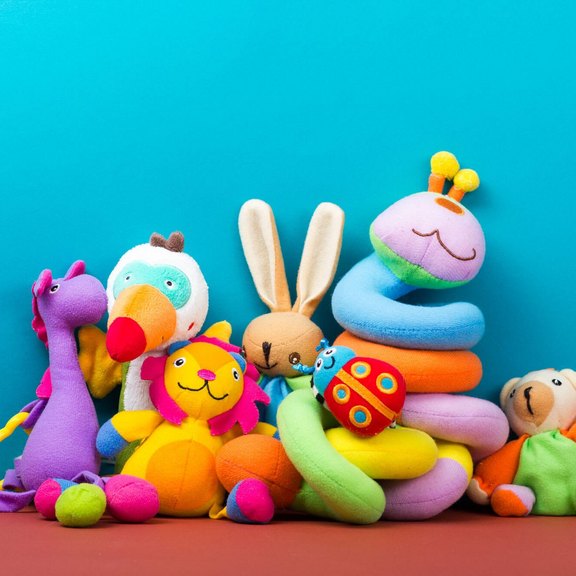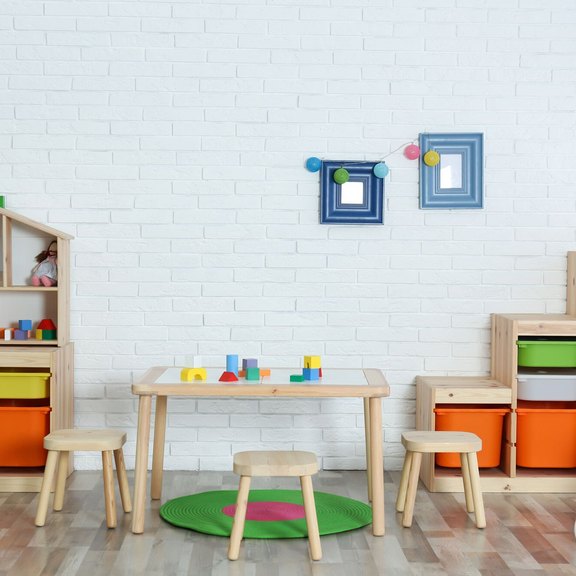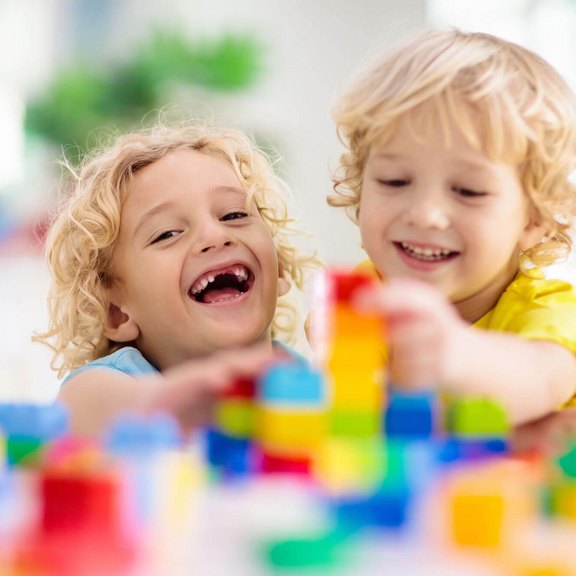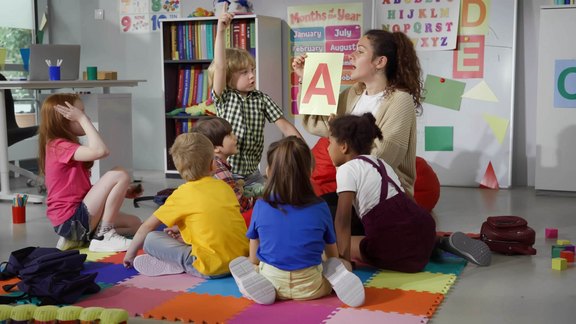Learning two languages is much easier to do in childhood. Leading researchers, including educational scientists and neurobiologists, make the point that children of primary school age already find it far more difficult to pick up a new language. As a language is taught through the medium of play in nurseries, children have fun learning it. This early groundwork in learning a language opens up a whole series of possibilities in later life.
Benefits of a bilingual upbringing
Bilingualism offers many advantages other than that making it far easier to learn languages as a child:
- Learning and understanding other cultures: Alongside language skills, children also have a greater awareness of cultures and communication in general. This brings with it significant benefits in many different aspects of later life.
- Better long-term focus and concentration skills: As a far greater attention span is already required to assign spoken words in the language to sentences when learning a second language, this in turn improves concentration and focus.
- Greater memory capacity: The brain cell networks in people who grow up multilingual are denser and more complex, which helps to enhance memory capacity. Bilingual children are therefore quicker to grasp concepts and understand mathematics. This also has a positive effect on a child’s spatial ability.
Bilingiualism offers many benefits, ranging from better career opportunities in the future or a reduced risk of suffering from Alzheimer’s disease. Children who grow up bilingual find it easier to learn other languages later in life.
Why children find it easier to learn a foreign language
The cognitive flexibility of bilingual children is far greater because the frontal lobe is well trained through switching between the different languages. This enhances the child’s capacity for self-reflection and helps them to grasp new ideas and solutions through greater creativity and flexibility. At nursery school age, the left hemisphere of the brain processes the second language. From ten years old, this is done by the areas in the right side of the brain controlling memory, after which language learning becomes much more difficult. As a result, language fluency is lost and accents are developed when speaking. Listening also plays a role in acquiring languages. Children of ten years old and more find it more difficult to mimic or repeat things as they no longer hear things as a small child might.
Bilingualism in nursery school and gaps in education
Bilingual nurseries do not accentuate gaps in education, in fact just the opposite: Multilingualism in nurseries has proven beneficial, to less high-achieving children in particular. Studies show that performance at school is improved by multilingualism, with the home environment also playing a less pivotal role with regard to academic achievement.
Conclusion:
Attending a bilingual nursery has a positive impact on children’s cognitive skills, which are beneficial in many ways, including within a school environment. Not only do these children perform better when it comes to languages, but also in other subjects such as mathematics. This is down to the fact that bilingual early education has a positive effect on attention span, memory, creativity, learning aptitude, planning, orientation, imagination, and determination. Children learn these at an early stage and can apply the knowledge and skills gained to many aspects of life. We would love to show you the progress made by children who attend our bilingual nursery! Simply get in touch for more information.




